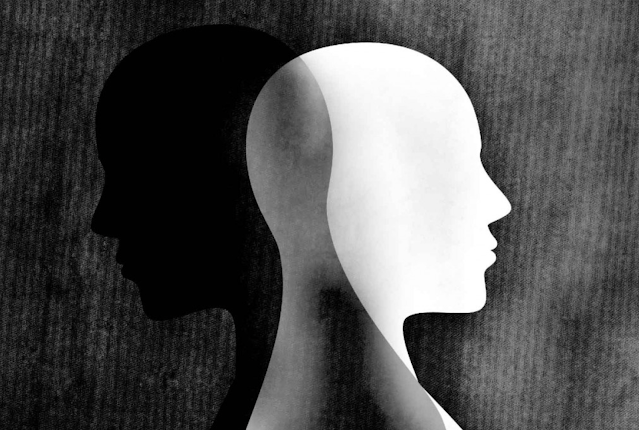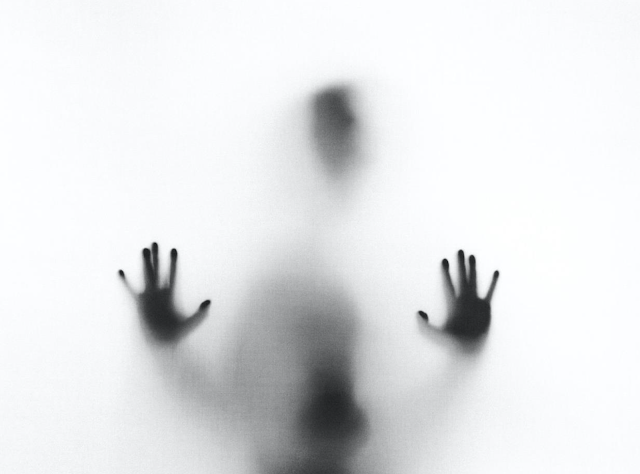Chapter 2: The Dark Triad: Dark Personality Traits
Introduction
Dark psychological traits are primarily dormant and only get triggered by an external factor. Assessing your personality will help reduce self-obsession, lower conflicts among individuals, and redefine the element of motivation. Identifying and addressing the dark traits is crucial to analyze and resolving them from the roots.
The Dark Triad has three overlapping yet distinct personalities: subclinical Narcissism, subclinical Psychopathy, and Machiavellianism. Subclinical, means that these traits aren’t severe enough to be diagnosed as disorders.
In 2002, a study on the Dark Triad was conducted at the University of Columbia. Delroy al Paulhus and Kevin M Williams researched whether the Dark Triad was identical to other psychological aspects. They concluded that Narcissism, Machiavellianism, and Psychopathy are indeed distinct. It was also thought that there is a relatively high genetic component among the three, while Psychopathy and Machiavellianism were more closely related to each other than Narcissism. Like most personality traits, the Dark Triad exists in everyone to certain degrees. In fact, some degree of Dark Triad indicates a potentially good leader, but people who fall under these three personality types have more negative qualities than the others.
How to Identify The Dark Personality Traits
Narcissism is mainly characterized by pride, egotism, and a lack of empathy. Narcissists tend to have a sense of superiority over those around them. On the other hand, Machiavellianism is characterized by manipulation, absence of morality, exploitation of others, insensitivity, and a dangerous level of self-esteem. In comparison, Psychopathy mostly shows antisocial behavior, impulsivity, and selfishness. Psychopaths lack empathy and act without thinking. The only common aspects of the three are that they are all associated with varying degrees of deception, controversial morals, and egotism.
Narcissism
With an inflated sense of self, Narcissists constantly want people to recognize them for their superiority. Even though they don’t accomplish much, they expect praise and attention from people around them. Narcissists tend to use dishonest means and justify their poor behavior.
There are two different kinds of Narcissism: Grandiose and Vulnerable. With Grandiose Narcissism, we see traits of being dominant, arrogant, and exploitative, while Vulnerable Narcissism exhibits a shy and moody personality of self-critical behavior. When we look into years of study on the Dark Triad, most studies refer to Grandiose Narcissism rather than Vulnerable Narcissism.
Psychopathy
In Psychopaths, we see overlapping narcissistic characters violating social norms, being callous, and lacking empathy. Psychopaths are also superficially charming yet irresponsible and manipulative.
Psychopathy Vs. Sociopathy: Are they the same?
The most common question that arises in the Dark Triad is about Sociopaths. Although psychopaths and sociopaths fall under the realm of Antisocial Personality Disorders as both share a lack of empathy and morality, there are, however, a few things that distinguish the two.
Psychopathy is one of the most challenging personality traits to identify, but it is also known to be dangerous. Psychopaths are pathological liars who rarely feel guilt and do whatever they can without remorse. Ted Bundy, a classic example of a psychopath, was excessively charming and kind, but as we know, he brutally murdered over 30 women in the 1970s, showing no remorse.
Sociopathy is mainly looked at as a learned condition, often caused by trauma. A sociopath likely develops it from environmental stressors like traumatic experiences from when they were young or triggered by an emotional breakdown. Sociopaths tend to have a weak conscience, so even if they are self-centered, they care about others more than Psychopaths. Although they hide their behavior, self-indulgence and lack of empathy are more prominent. The most apparent reason why Sociopathy isn’t part of the Dark Triad could be due to its influence from environmental factors rather than genetics.
Machiavellianism
The term Machiavellianism comes from an Italian diplomat in the 1500s. Machiavelli is most known for his book, "Prince,” which offers advice on how politicians and leaders rise to the top by any means necessary. The book says that a leader never lacks good reasons to break his promise, which is related to the trait of Machiavellianism. He says that even if leaders are not generally manipulative or dishonest, they must use these tactics to stay in power.
Clinical psychology doesn’t mention Machiavellianism as much as Narcissism or Psychopathy, primarily because Machiavellianism in literature is related to career or workspace. With Machiavellianism, we see the characteristic of being manipulative, callous, or negatively goal-oriented, which again overlaps Psychopathy and Narcissism. In contrast, people who fall under this category have a good level of impulse control and are closely related to white-collar crime. Hence, there isn’t clinical impairment with this trait. However, these people are master manipulators; they know what to say and do to fulfill their needs.
In 2011, research on the Dark Triad conducted by the University of Western Ontario suggested that Dark Triad Traits are genetic, which means that these people are possibly born that way. Although trauma and environmental factors cause people to commit crimes, the tendency to commit hideous crimes without remorse or attempt to manipulate people is mainly inherent. This means further research could help us identify potentially dangerous people at an early stage, or maybe we could even change them for the better.
Perspectives of Dark Triad Traits
If someone you know is exhibiting dark triad traits, how do you approach them? What can you do about it? There’s no easy way out of a situation like this. Experienced psychologists say that there are many gradations of personality types that mostly shift from day to day. However, a few things must be considered to maintain workspace ethics or general harmony in relationships.
Anger Management and Coping Mechanism
In 2010, Adrian Farnham, a British psychologist, identified that the dark triad is related chiefly to possessing leadership positions or interpersonal influence. It could be people at a workspace, a group of friends, or even a household. Most often, signs of the Dark Triad are exposed through anger and dictatorship.
Often the signs of anger can easily be spotted when a person raises their voice, has a flushed face, or is sweating. At times people resort to passive aggression by sulking or ignoring people. There are several strategies to handle aggressive people. It’s essential to stay safe at first; if you’re threatened, leave the room immediately or if it’s an ongoing issue, try to identify the root cause. Questioning tactics and active listening or even helping them approach a therapist would solve the problem.
Bullies and Internet Trolls
Some of the terms we come across on Social media these days are flaming, roasting, gaslighting, etc. Studies on antisocial behavior suggest that people identified as trolls show signs of Psychopathy, Narcissism, and Machiavellianism. They are slightly connected to bullies we’ve encountered as adolescents and teenagers. The dark personality of Bullies spills out as verbal abuse, threat, or unnecessary criticism.
From belittling someone to even spreading false rumors, bullies are everywhere. If you spot a bully, confront them and support the victim. If you’re being bullied, seek help from someone or even authorities based on the gravity of the issue.
Manipulative Partners
Manipulative people are too good at hiding their emotions and altering their actions too quickly. If your partner has Machiavellian tendencies, they could try to convince you to do something you clearly said you didn’t want to. They can’t apologize for their mistakes, nor can they take a no for an answer. People who fall under this category are opportunistic and exploitative. Studies on manipulation used as a mating strategy suggest that people with Dark personality traits report having more sexual partners, favor casual sex and open relationships, risk takers in substance abuse with low self-control.
Dark Empath: The Most Dangerous Personality Trait
We all know an empath, a kind-hearted, good-natured, and altruistic person who ranks high in affective and cognitive empathy. A Dark Empath doesn’t necessarily need to have a high rank on practical empathy, but they show signs of cognitive empathy associated with Dark Triad traits. Just because you show empathy doesn’t mean you understand another person’s emotions; this here is cognitive empathy, meaning they imagine the other person’s perspective without feeling the emotional component. Just when you think that personalities couldn’t get more complicated, it gets more complicated.
When a person with some of the patterns of the Dark Triad characterized by exploitativeness, manipulation, superficial charm, unethical behavior, entitlement, and arrogance shows signs of empathy is what you call a Dark Empath.
A study in 2020 by Heym and her associates found that 19.3% out of 991 participants were Dark Empaths. It showed that there might be a new distinct personality that doesn’t fit into the Dark Triad group. The research found that people who appeared to be Dark Empaths also ranked differently on the Big Five Personality Test compared to the average population.
Dark Empaths scored high on Extraversion and Neuroticism; they also found that they are more agreeable and less aggressive than the Dark Triad. It was also noted that Dark Empath had a higher sense of well-being with quality life and social engagement. Most of them also used malicious humor more often than empaths and neurotypicals. Sigmund Freud first introduced malicious humor and called it Tendentious. It is the most disruptive form of humor used on vulnerable individuals, groups, or even a religious or racial community.
On the brighter side, Dark Empaths make excellent first responders or frontline workers. Even though they aren’t the most pleasant people to have in your life, they have a place in society. Social workers, surgeons, and police officers who are usually exposed to highly traumatic stimuli benefit from Dark Empath traits. They need to numb their emotions during high stressors; for example, if a surgeon lets empathy get in their way, it’s possible to faint from seeing blood or even risk the patient’s life. Dark Empaths are skilled in detaching their empathy when necessary, making them excellent in these fields.
In short, Dark Empaths are emotional shapeshifters; they can blend into a crowd regardless of the setting that they’re in. Their empathy lets them adapt, making them appear charming and likable, and people genuinely fall in love with them.









Comments
Post a Comment